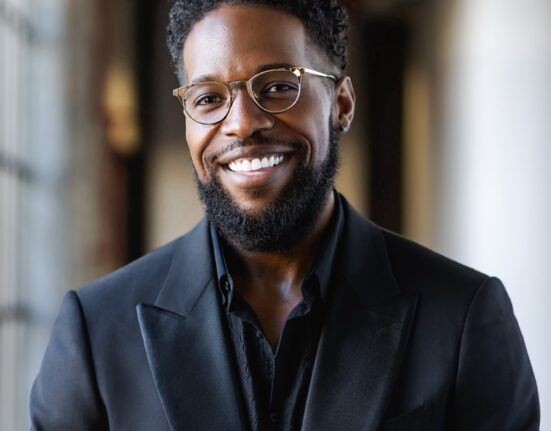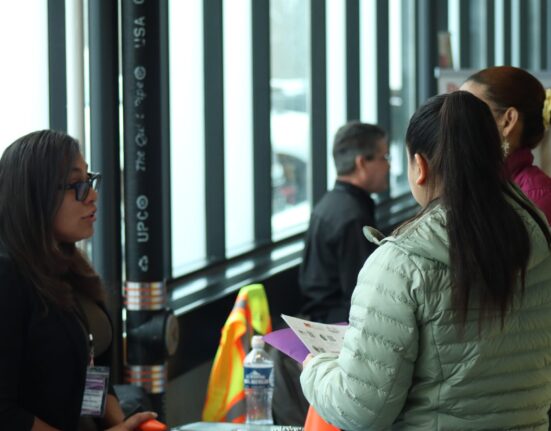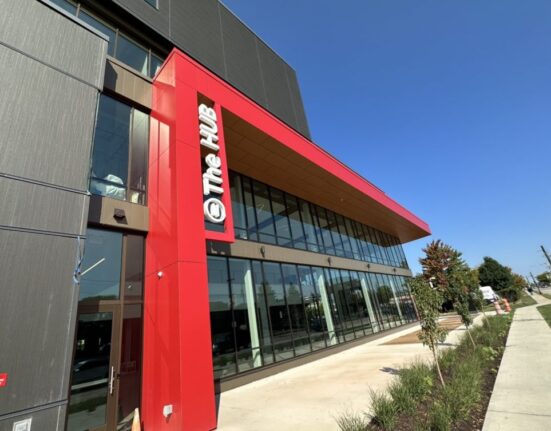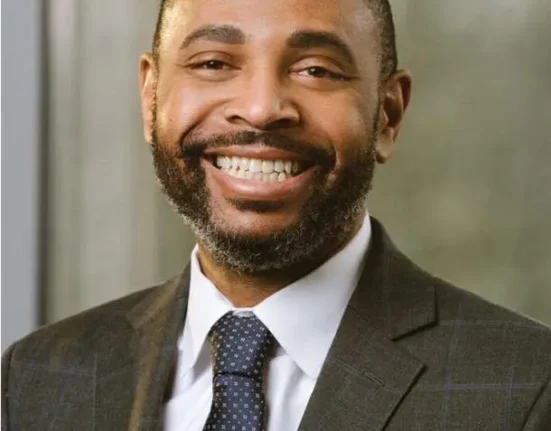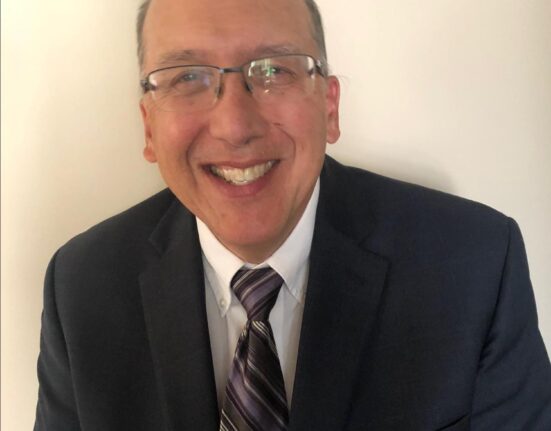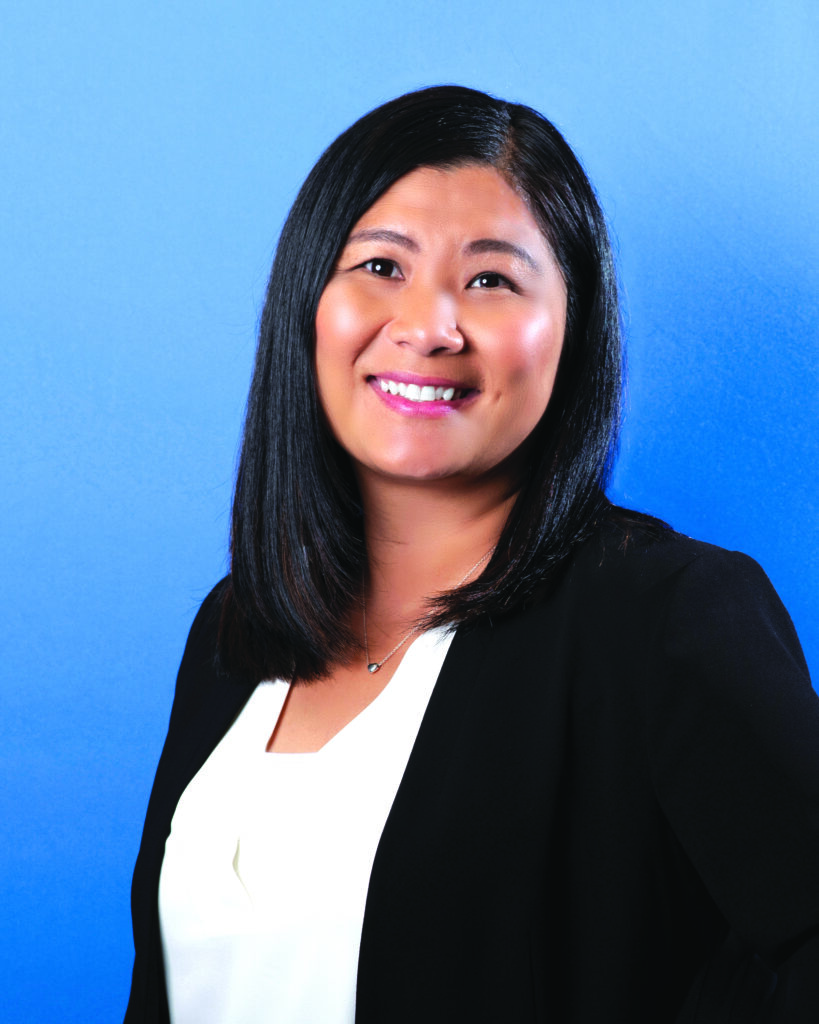
Pa Lee Moua holds a doctorate in Leadership Studies, has spent over 20 years in higher education, and over five years in K-12 leadership. Most recently, she was named the Executive Director of the Schreiber Institute for Women’s Leadership at the University of Wisconsin-Green Bay. But it wasn’t a steady, traditional path that brought her to these professional successes. In fact, when she was young, she didn’t even know if college was in the cards for her at all.
Born in a refugee camp in Thailand, Moua immigrated to the United States with her family in the 1980s when she was just 5 years old. After a few years of living in California, her family moved to Sheboygan, and later to Appleton, where she and her own family have been for almost 30 years.
A teen mom at 17, it was clear to Moua early on that her parental duties would keep her busy, and she paid little mind to the prospect of college. But during a school trip to Fox Valley Technical College, she learned about the non-traditional way of pursuing a post-secondary degree through night and weekend classes. A counselor at the visit really encouraged her to go this route. “That was really the first aspect of me ever thinking, ‘Hey, I could possibly go to college while being a young mom. I could actually make this work.,” she says.
Moua would go on to earn her associate’s degree in two years’ time, then land a job at FVTC’s Minority Resources Center, where she gained more professional skills. From then on, her work in higher education gained momentum: She received a bachelor’s in business administration from Lakeland College, worked for several years in diversity, equity, and inclusion (DEI) positions, earned a master’s in educational leadership and administration, and completed a doctoral degree in leadership studies from Marian University of Fond du Lac.
Over the course of two decades in higher ed and five years in the Appleton Area School District, Moua has learned the ropes of “resources, services, policies, procedures across the board.”
But in 2023, the demands of Moua’s personal life began to shift again, causing her to pause and take stock of what she needed to prioritize in her everyday life. Moua’s mother fell ill, making her reevaluate the part that work could play in her life.
“I loved being an educator, I loved working for the Appleton school district, but my time and energy and effort just needed to focus on my family,” she says.
Despite all of the hard work that she’d put into building a career for herself, Moua knew that at the time, she was “mentally and emotionally drained.”
“I think I just needed to reset, I just needed to clear my mind, to refocus my energy, my effort, my time,” Moua says.
And so she did: With her husband taking on the responsibility of being their household’s primary breadwinner, Moua took time off work and spent time with her parents and her two younger daughters. She even leaned into her creativity with a new side business, Petals by PLM, which curates flower arrangements.
With this time away from the demands of a career in education, Moua was able to recalibrate and unknowingly prepare herself for a role she was perfect for. When the Schreiber Institute executive director position opened, it was the right time for Moua to jump back into things: she was energized, passionate, and refocused.
The Schreiber Institute for Women’s Leadership is a combination of two separate initiatives dedicated to expanding professional resources for women in northeast Wisconsin, both of which began in 2019. In 2021, a monetary gift from Schreiber Foods allowed them to come together under the Institute, and to begin the search for a full-time director.
As someone who is oriented towards giving back to her community, Moua was inspired by the Institute’s founders who were set on similar goals.
“I have privilege in terms of my educational background [and] my credentials,” she says. “And so how do I use that to be able to expand opportunities for more women, [to help] diverse women enter spaces and job careers that they don’t always feel like they belong in, or that they don’t feel have the right credentials to be able to apply for? There were one or two people that did that for me. So how do I reach back and do that for other women as well?”
A large undertaking of the Institute is being able to “shift the mindset [and] the narrative of what leadership means today.”
“Growing up as a young Hmong daughter and a Hmong wife, I never fit the ideal ideology of leadership,” Moua explains. “I never fit the narrative. I never fit the visual, so how do we start to shift and change that?”
The Institute’s monthly Caffeinated Conversations draw on the experiences of women business leaders—from managing holiday stress to navigating personal branding—and creates a space for them to share resources with one another to move towards collaboration and away from competition.
One of the Institute’s main focuses is improving the mental health of working woman, which their 2021 study cited as one of the biggest issues impacting their lives. “We talk a lot about mental health [in terms of] working culture, where people feel like they have a voice and they have representation,” Moua explains. “But this other aspect of mental health is all the obligations and expectations that are put on women, to be able to find that balance in their personal life, as well as their career.”
Moua says that organizations also have to change structurally to accommodate the realities of their employee’s lives, especially women. In particular, she wants to push against expectations of always being “super busy,” and “being able to do it all.”
“I don’t think that’s normal,” Moua says. “I don’t think that’s normal for someone to be able to continue that expectation.”
Six months into her role as Executive Director, Moua is setting her sights on networking with other institutes throughout the state doing similar work, especially the Institute for Women’s Leadership at Marquette University and Milwaukee Women Inc. “We want to be able to partner and really parallel our research to really be able to broaden […] what leadership for women looks like in Wisconsin,” she says.
The Institute is also working to expand its reach to high school girls before they enter the workforce, collaborate with local business sectors, and potentially broaden resources out to the Oshkosh area.
Most importantly, Moua looks forward to applying her own strategic mindset to something that “already has such a strong foundation of collaboration and support,” and her personal journey greatly shapes that too: “We have this perfectly painted picture or this roadmap that we envision that we’re gonna go on, and sometimes, you’re on the right path. And then other times, you have to take a pause and go off the path a little bit, but eventually, you will always find your way back.”

